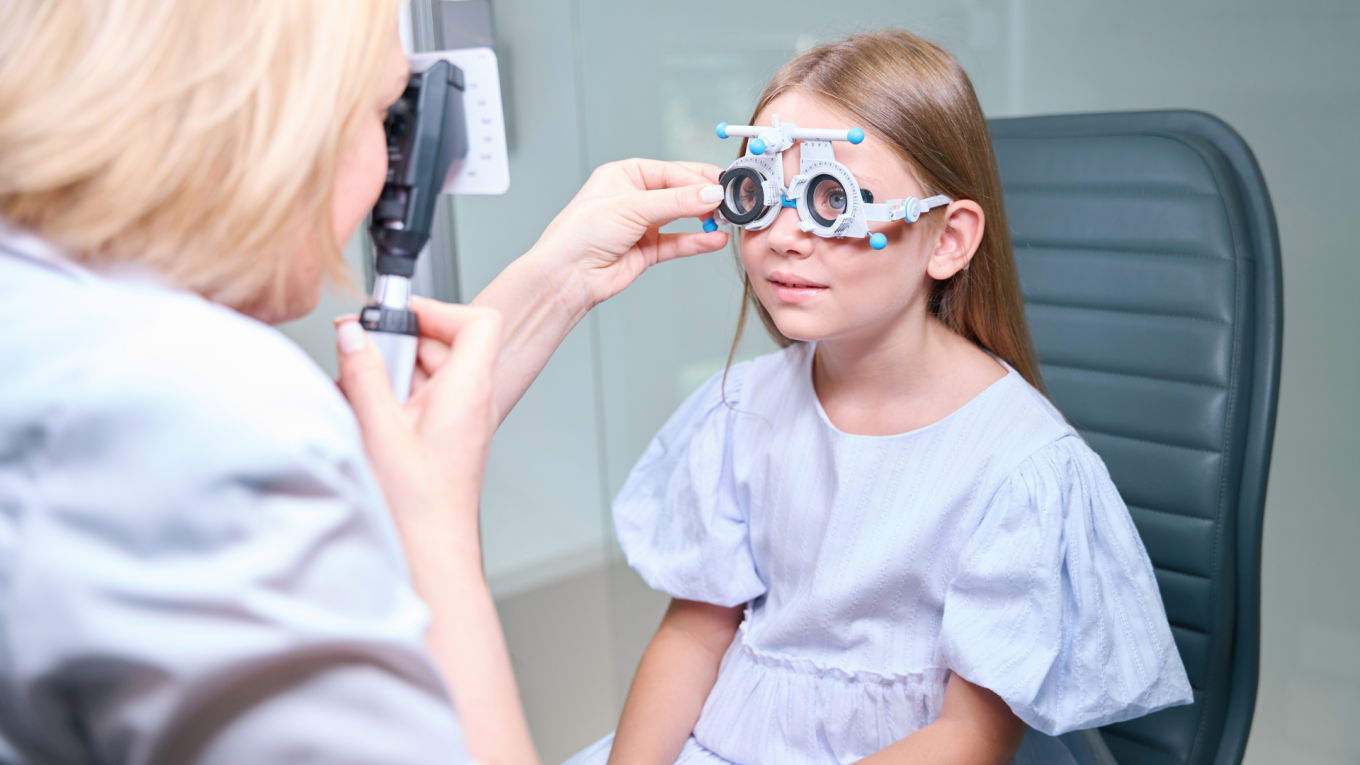
Orthoptist
Orthoptists help improve people’s lives by diagnosing and treating problems with eye movement and vision. They also play a vital role in identifying more serious conditions linked to the brain and nervous system.

On this page
Introduction to the role
Orthoptists are specialists in diagnosing and treating problems with eye movement and visual function. They focus on how the eyes work together and how vision is linked to brain activity. In this role, you’ll also help identify serious neurological conditions such as Parkinson’s disease or multiple sclerosis.
You’ll work closely with other eye care professionals as part of a wider team, supporting patients of all ages. Your day-to-day work will have a direct impact on people’s lives, whether you are helping someone manage a squint or relieving the discomfort of double vision.
About the role
What does an orthoptist do?
As an orthoptist, you’ll assess and treat a range of vision and eye movement issues. You might work with babies to monitor their early visual development or support stroke patients who are experiencing changes in their sight. Your role will often involve long-term care, seeing patients regularly to manage their condition and improve their quality of life.
Orthoptists work in a variety of settings, including hospitals, schools and community clinics. Wherever you are based, your focus is on providing personalised care and helping each patient achieve the best possible outcomes for their vision.
What are the pay and conditions like?
As an orthoptist, you’ll usually work around 37.5 hours per week. Depending on the setting, your schedule may include some evenings or weekends.
Most roles start at band 5 on the Agenda for Change pay scale. You’ll also receive at least 27 days of annual leave, plus bank holidays, and have access to the NHS pension scheme and staff discounts.
Where orthoptics can take you
Once you’ve qualified as an orthoptist, there are a range of career development opportunities to explore.
You could:
- specialise in a particular area and progress to a senior or head orthoptist role
- move into teaching, research or private practice
- take on leadership responsibilities, managing a team or overseeing budgets
You’ll have regular professional development reviews to support your goals and keep your skills up to date. You may also choose to join the British and Irish Orthoptic Society to access further training, events and networking opportunities.
Life as an orthoptist
Life as an orthoptist
Person specification
Is orthoptics right for you?
Orthoptists work with patients of all ages, often helping them manage conditions that affect their sight and quality of life. You’ll need strong communication skills to explain diagnoses and treatment options clearly, and the confidence to support patients through their care journey.
Ask yourself:
- Am I comfortable working with both children and adults?
- Can I explain things clearly and with patience?
Do you have the skills to succeed?
You’ll need to be well organised and able to make decisions based on clinical assessments. Attention to detail is essential, as you’ll be working with precise measurements and developing tailored treatment plans.
Ask yourself:
- Can I stay focused when managing multiple patients?
- Am I confident making decisions and noticing small but important details?
Find a course with UCAS
Want to explore the next step in traditional degree routes into the NHS? Explore courses related to orthoptics with UCAS today.
Entry requirements and training
To become an orthoptist, you’ll need to complete an approved degree or master’s in orthoptics. The undergraduate route typically takes three to four years and includes both academic study and hands-on work with patients. A postgraduate option is also available, which takes around two years to complete.
Once you’ve successfully completed your degree, you’ll need to register with the Health and Care Professions Council before you can begin practising.
Most universities ask for two or three A levels, usually including a science subject, along with five GCSEs at grades 4-9 (A-C), including English language, maths and science. They may also accept equivalent qualifications such as a BTEC or HND in a science-based subject, a relevant T Level or NVQ, an access to science course, or equivalent Scottish or Irish qualifications.
Entry requirements can vary, so it’s important to check directly with the university. Wherever you apply, you’ll need to show a good understanding of the profession. Spending time with a registered orthoptist can help you gain valuable insight into the role and demonstrate your interest during the application process.
There may also be apprenticeship routes or alternative training options available in some areas. It’s worth exploring what’s currently offered by individual employers and training providers.
Find out more about routes into the NHS with UCAS.
Work experience
Applying for a course or apprenticeship as an orthoptist is going to be competitive. If you're seriously considering it, it is a great idea to try and gain some prior work experience to strengthen your application. Visit NHS England to find out more about gaining work experience for careers in the NHS.
Financial help at university
You could receive at least £5,000 a year to help fund your studies while at university in England. Your personal circumstances and the course you choose may mean you could receive more. And the good news? You'll never have to pay it back.
Explore NHS Careers
There are over 350 different NHS careers and everyone makes a difference every day. Whether you’re still in education or thinking about changing careers, you'll get the information you need.